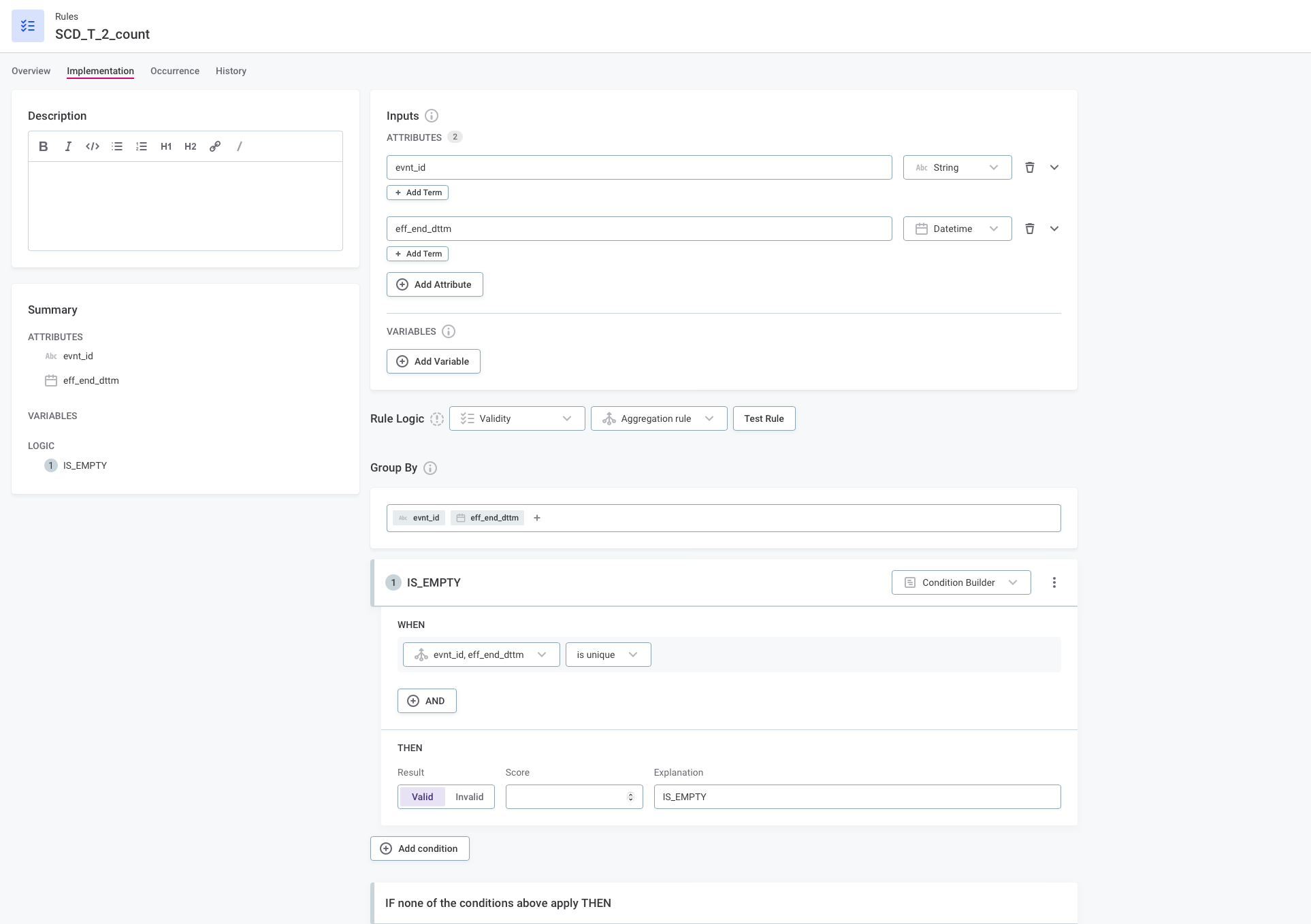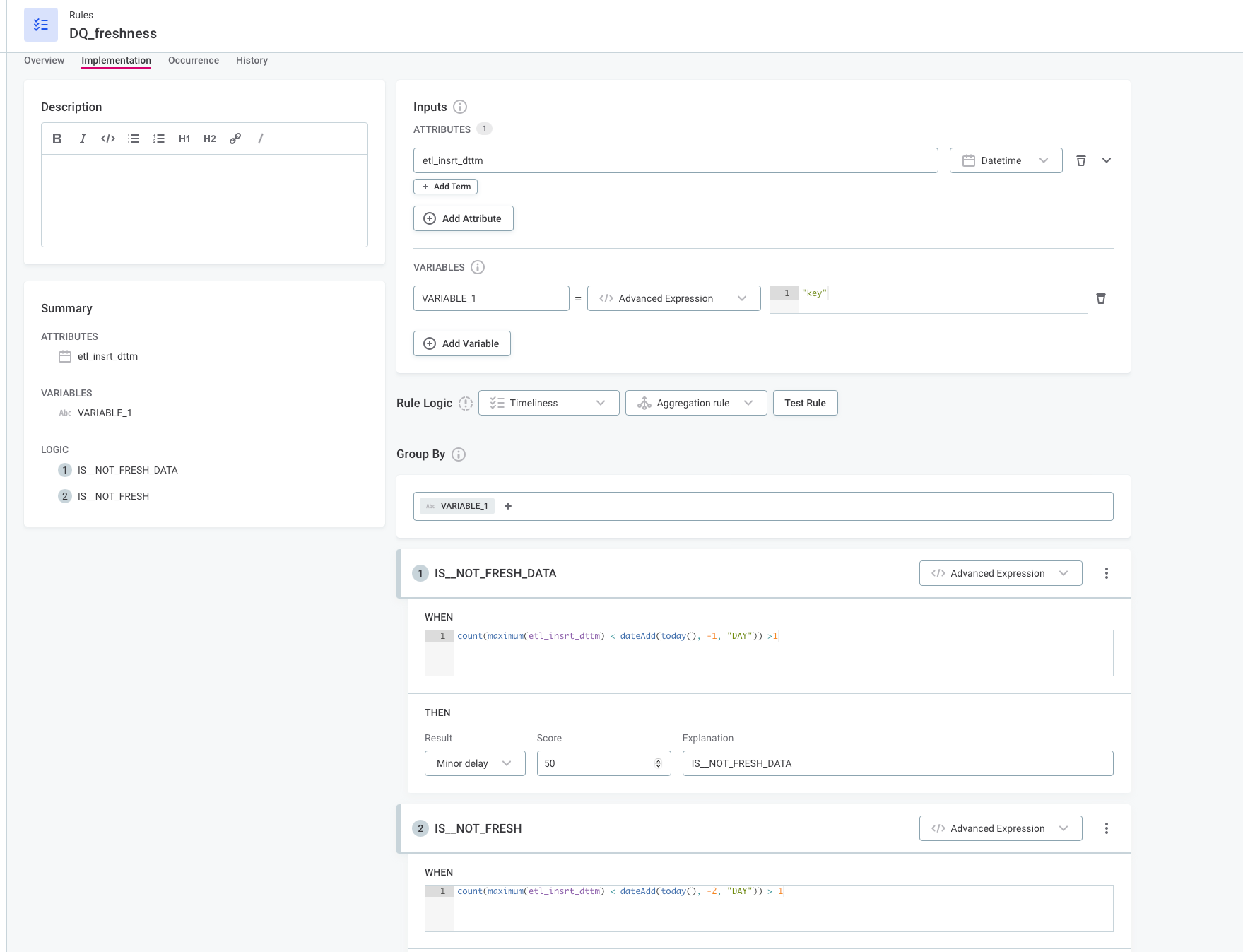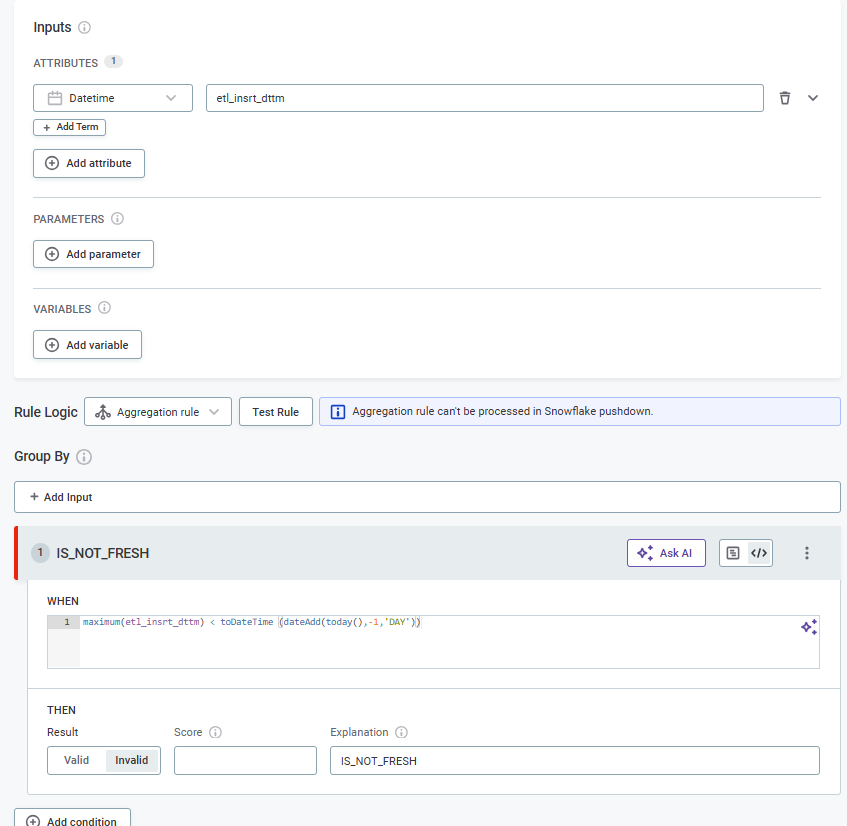Hi everyone,
- Data Observability tab and AI functionality are not available. How can I check SCD Type 2 using DQ rules?
- Data Freshness. How can I check using DQ rules? Datetime datatype is for eff_strt_dttm, it’s one column where data is, but I don’t know how make: today() >>>as datetime minus 1 day











